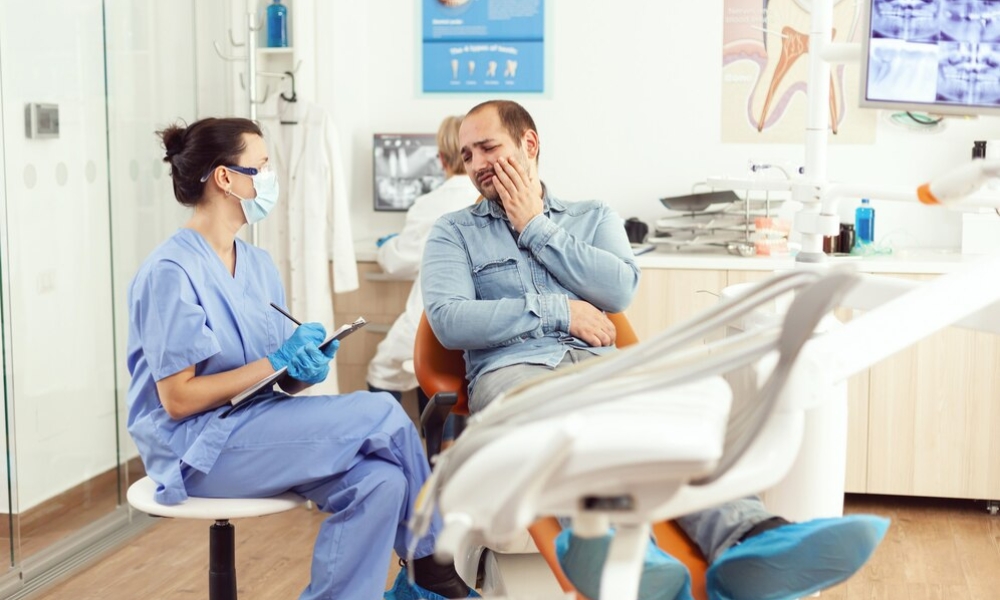
Dental emergencies can happen when you least expect them, causing pain, discomfort, and sometimes panic. Knowing how to respond in these critical moments can make a significant difference in protecting your oral health. Immediate care relieves pain and can prevent long-term damage or tooth loss.
Equipping yourself with the right knowledge ensures you can handle dental trauma until you reach your dentist. Read this blog to learn how you can get quick relief from these injuries.
Common Dental Emergencies and Their Causes
Here are some emergencies that you might face anytime:
Toothache
A sudden or persistent toothache is actually a common dental emergency. You may experience this because of dental decay that has reached the inner pulp, infections, or due to food particles lodged between teeth.
Chipped or Broken Tooth
Accidents or biting down on hard objects can chip or fracture teeth. Depending on the extent of the damage, this condition may cause mild discomfort or severe pain, especially if the tooth’s nerve is exposed.
Knocked-Out Tooth
You might lose a tooth due to a sports injury, accident, or fall. Seek immediate attention for it. The faster you respond, the better the chances of saving the tooth.
Lost Dental Filling
Fillings and crowns may become loose or fall out due to wear and tear, hard foods, or teeth grinding. Your exposed tooth can become sensitive or prone to further damage without protection.
Steps to Take During a Dental Emergency
Here are some steps that you can take to protect your already damaged tooth before seeking emergency care in Rifle:
- Rinse your mouth with warm salt water to reduce bacteria and soothe the damaged area.
- Use dental floss to dislodge any trapped food that might cause infections or severe toothache.
- Apply a cold compress on the outside of your cheek to minimize swelling and discomfort.
- Is your tooth broken? Save any broken pieces if possible.
- Bite down on some clean gauze to control any bleeding and reduce swelling.
- Handle your knocked-out tooth by the crown. Touching the root can damage it and make reinsertion impossible.
- Attempt to reinsert the tooth into its socket or place the loose tooth in milk to keep it moist until you reach your dentist.
- For a lost filling or crown, use dental cement, dental wax, or sugar-free gum to protect the exposed tooth.
When to Seek Professional Dental Care?
Certain signs indicate you need urgent dental attention:
- Seek care for uncontrolled bleeding that persists despite applying pressure
- Severe pain that is improving with over-the-counter pain relief indicates a more serious underlying issue.
- You should never ignore swelling that spreads to your face, neck, or eye area
- If you experience signs of infection, such as fever, pus, or difficulty swallowing, seek professional treatment.
Delaying treatment can worsen your condition, potentially leading to more extensive dental work or permanent damage.
How To Prevent Dental Emergencies?
Prevention is key to keeping your oral health and avoiding unexpected dental emergencies. Here are some proactive steps you can take:
- Schedule regular dental checkups to catch potential problems early.
- Wear a mouthguard during sports or physical activities to protect your teeth.
- Avoid chewing on hard foods like ice, popcorn kernels, or hard candies.
- Get rid of bad habits such as using your teeth to open packages or biting your nails.
Dental emergencies can be stressful, but knowing what to do can help minimize damage and discomfort. Acting quickly, taking the right steps, and seeking professional care are crucial for protecting your oral health. Preparing an emergency dental kit and maintaining regular dental visits will keep you ready for unexpected situations. Ready to handle emergencies like a pro? Contact us for emergency dental services.




